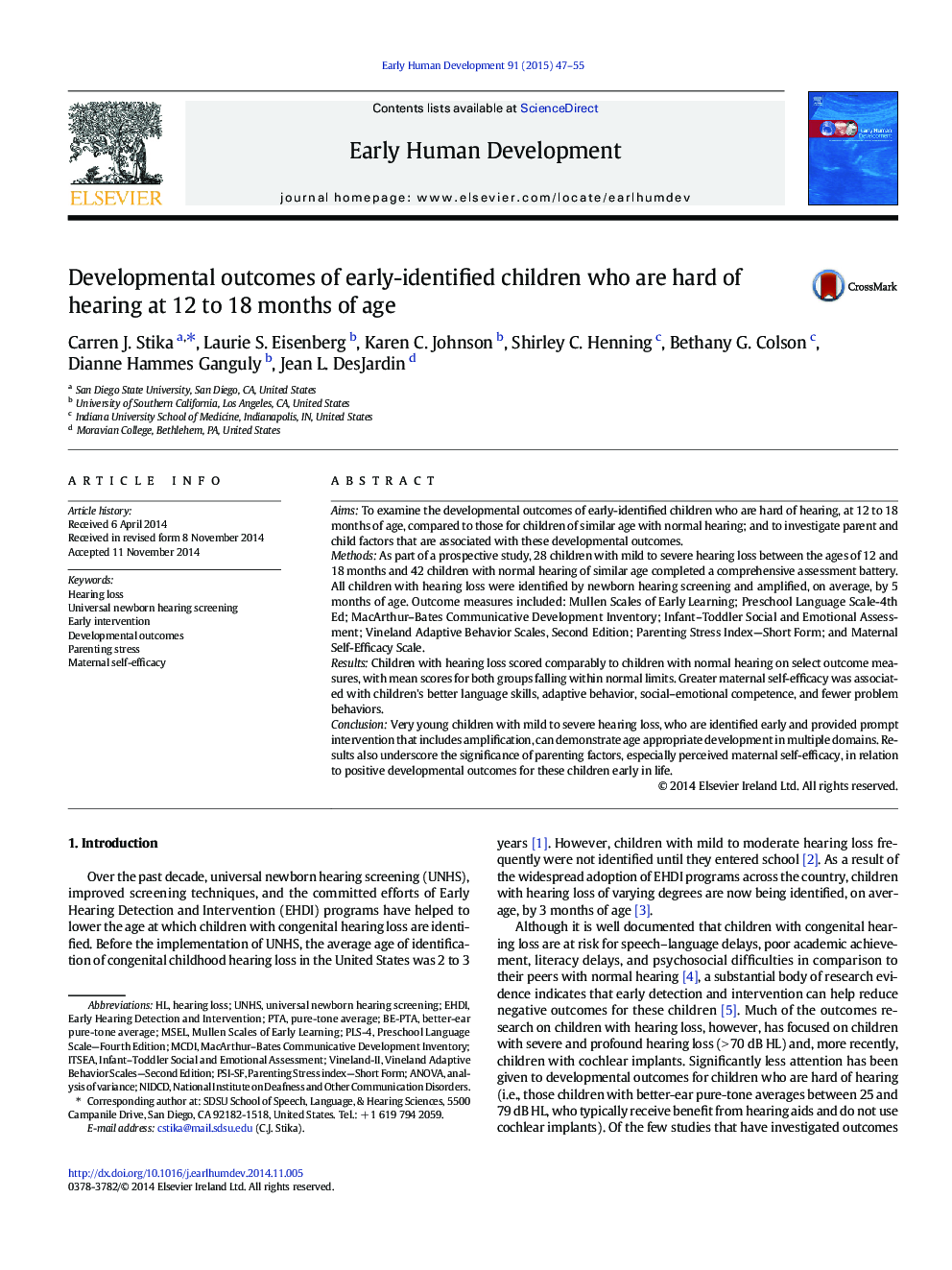| Article ID | Journal | Published Year | Pages | File Type |
|---|---|---|---|---|
| 3917956 | Early Human Development | 2015 | 9 Pages |
•We examine the developmental outcomes of children who are hard of hearing at ages 12–18 months.•Children with hearing loss were comparable to children with normal hearing on select outcomes.•Greater maternal self-efficacy was associated with children's positive development.
AimsTo examine the developmental outcomes of early-identified children who are hard of hearing, at 12 to 18 months of age, compared to those for children of similar age with normal hearing; and to investigate parent and child factors that are associated with these developmental outcomes.MethodsAs part of a prospective study, 28 children with mild to severe hearing loss between the ages of 12 and 18 months and 42 children with normal hearing of similar age completed a comprehensive assessment battery. All children with hearing loss were identified by newborn hearing screening and amplified, on average, by 5 months of age. Outcome measures included: Mullen Scales of Early Learning; Preschool Language Scale-4th Ed; MacArthur–Bates Communicative Development Inventory; Infant–Toddler Social and Emotional Assessment; Vineland Adaptive Behavior Scales, Second Edition; Parenting Stress Index—Short Form; and Maternal Self-Efficacy Scale.ResultsChildren with hearing loss scored comparably to children with normal hearing on select outcome measures, with mean scores for both groups falling within normal limits. Greater maternal self-efficacy was associated with children's better language skills, adaptive behavior, social–emotional competence, and fewer problem behaviors.ConclusionVery young children with mild to severe hearing loss, who are identified early and provided prompt intervention that includes amplification, can demonstrate age appropriate development in multiple domains. Results also underscore the significance of parenting factors, especially perceived maternal self-efficacy, in relation to positive developmental outcomes for these children early in life.
